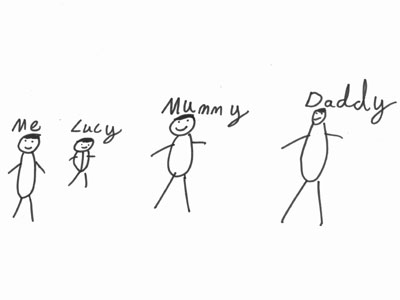
Social workers say their jobs have become more difficult since the government published its controversial adoption action plan.
Delegates at a Community Care conference on adoption reform yesterday said some adopters have been making “unreasonable demands” since the news broke.
One social worker based in an adoption team said: “Even though we’ve spent time building up good relationships with adopters, they’ve been quite hostile since news broke about the adoption reforms.
“They’ve been calling up saying things like, ‘so how long are the delays in this local authority then?’ It makes our jobs much more difficult.”
One adoption team manager, said: “Already adopters are more difficult and demanding and that started about two days after the reforms [were announced]. It’s actually slowing down my work and making it much harder on a daily basis.”
But it is not just adopters who have been more difficult, social workers said.
“Families we work with in the community have also been increasingly obstructive,” said one senior practitioner.
“They know the government wants to boost adoption numbers so they all think we’re going to be under pressure to get more children adopted. They think we want to take their children and have them adopted to boost our adoption rates,” she said.
Another agreed: “Messages from politicians about social workers who wait too long to place certain children have been really unhelpful.
“That’s not my experience. For me the biggest issue is finding adopters who understand the complex level of need some children have.”
Delegates also warned adoption score cards could dissuade social workers from finding placements for harder to place children, including siblings and older children.
“Local authorities will be worried this might affect their adoption scores as we’re being rated on the time it takes to place children,” one delegate said.
Nicki Muller, an independent reviewing officer, told speaker Mary Lucking, head of adoption at the Department for Education: “I think you’re going to build in the scandals of the future and lose some excellent placements”.
Delyth Evans, who works in adoption support, told Lucking: “We’ve got to get post-adoption support sorted out first. We have a moral obligation to ensure adoptive placements are properly supported.”
Lucking said the government was taking the issue of adoption support seriously and assured social workers that adoption data would be looked at “in context”.
“We’ll be looking at other information when we get the data, like how good you are at placing siblings and older children. Please don’t take it as meaning we’re after speed at all costs. Yes, reduce unnecessary delay but make the right decisions for children,” she said.
Score cards have been designed to “drive improved performance and to identify good practice” she said, telling social workers to share their good practice with her department.
The first score cards will be published in the next two weeks, Community Care understands.
Related articles
The future of adoption social work


 Bournemouth, Christchurch and Poole
Bournemouth, Christchurch and Poole  Hampshire County Council
Hampshire County Council  Lincolnshire County Council
Lincolnshire County Council  Norfolk County Council
Norfolk County Council  Northamptonshire Children’s Trust
Northamptonshire Children’s Trust  South Gloucestershire Council
South Gloucestershire Council  Wiltshire Council
Wiltshire Council  Wokingham Borough Council
Wokingham Borough Council  Children and young people with SEND are ‘valued and prioritised’ in Wiltshire, find inspectors
Children and young people with SEND are ‘valued and prioritised’ in Wiltshire, find inspectors  How specialist refugee teams benefit young people and social workers
How specialist refugee teams benefit young people and social workers  Podcast: returning to social work after becoming a first-time parent
Podcast: returning to social work after becoming a first-time parent  Podcast: would you work for an inadequate-rated service?
Podcast: would you work for an inadequate-rated service?  Family help: one local authority’s experience of the model
Family help: one local authority’s experience of the model  Workforce Insights – showcasing a selection of the sector’s top recruiters
Workforce Insights – showcasing a selection of the sector’s top recruiters 

 Facebook
Facebook X
X LinkedIn
LinkedIn Instagram
Instagram
Comments are closed.